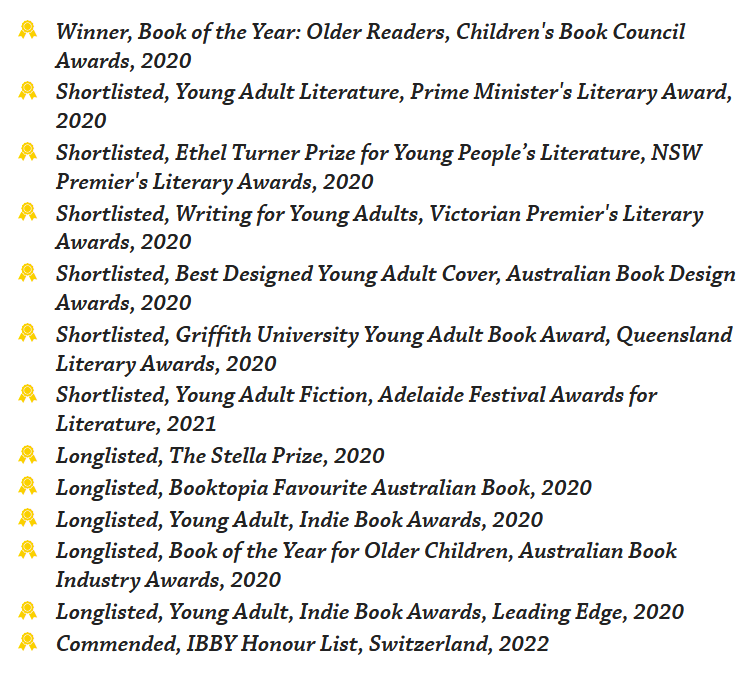'This is how we change the ending' - A raw and beautiful Australian fiction (it's for older teens, but whatever, I loved it).
12 comments

Cover from Publisher's Website - Text Publishing
This is how we change the ending.
Vikki Wakefield
2019, Australia, Text Publishing
In my last post, I shared that I had gone to the library recently and just wandered around, trying to find a book or two which looked interesting. I was judging books by their titles and covers, and it worked – I enjoyed my last book, and I devoured my second.
‘This is how we change the ending’ is brilliantly raw and insightful. The novel follows 17 year old Nate McKee – to be frank, his life is not one you would envy. He lives with his dad, his mum left years ago. His dad has a new girlfriend who is only a bit older than Nate, and they have had twins. The father is an alcoholic, there is no money in the house and the father is abusive – Nancy can barely leave the house, there is no way for her to leave, and Nate ends up wandering the streets most nights. He can’t sleep – he’s stuck in a small room with the twins who scream all night, as his own bedroom has been turned into a hydro setup for his dad to grow marijuana plants. It’s a profitable crime for him, but all his profits end up going down the pokies.
School doesn’t offer Nate much reprieve, as he is constantly intimidated by other kids and there is a culture within his school to be apathetic towards education. Nate wants more for his life than living in his horrible suburb, in the housing-commission flat which is falling apart. He’s not safe, he has no friends, he doesn’t really have family and the only people he connects with are at the Youth Centre, which is closing down.
But – the novel demands the reader engage with Nate’s existence; we can sense there is more to him than his quiet demeanour. He’s no hero – he’s not athletic, or particularly smart. But – in one poignant conversation he has with a girl from the Youth Centre, Tash – she challenges him: it could be worse.
She was right – you see, Tash offers that both their lives are not what they would want, but they know there is something more and they want better for themselves. Nate wonders whether it’d be better to be ignorant of ‘better’ and just stay static, kiss a girl, have a baby, get their own low rent tenancy and begin a life of petty crime.
But then, a class assignment is given to Nate: think back on five key moments in your life where you walked away or did nothing, perhaps remained silent. You might have regretted the moment, it might have lingered as something you wanted to do different. The task was to re-script the scene with how you would do things differently. For Nate, he re-wrote one recurring incident at school, where he is stood over by one bully, and it always puts him at a disadvantage (in this case, borrowing from the class laptop bank – there’s not enough for everyone in the class, and he always misses out). He writes the script, and, then he decides to enact it. It didn’t go perfectly, but he stood up to the kid – and the entire class got behind him. He’d started to change the ending. Before this – he'd only ever write things down into his note-book and worry; this was a very different approach for him.
And, this snowballs – he begins a guerrilla protest movement to save the Youth Centre and he starts to re-engage with his mum. She escaped and while it took years to get sober, she turned her life around. She becomes a direct contrast with Nance – who can’t leave; she has four hundred backs, but it wouldn’t be enough to get away. And then Nate steps up again, showing her where his dad keeps a secret stash of cash hidden behind the kitchen sink. Nance takes the children and leaves; but Nate worries that she won’t get far enough away to stay gone – so he decides to buy her time. He goes to the local payphone and makes an anonymous tip-off that his bedroom is a drug-growing haven. As an added bonus, he hopes this will let Nance get full custody of the kids, and that perhaps he's broken a familial cycle.
Nate was an ordinary kid in a shit situation, and while his actions weren’t ‘world changing’, the point was – he changed the ending of his own story.
Rating – at least an 8.9/10. It was really powerful seeing this kid’s disadvantage. Sure, it was fiction – but it was set in a real suburb, and the characters were all so real and identifiable. I guess being a High School teacher I recognised so many of the characters and their backgrounds, so it hit close to home. Worth a read – I couldn’t put it down, reading about 1/3 of the box each day. Sure - the book might be for older teen readers, but I found myself engrossed!
And - others seem to agree
Image from publisher's website: https://www.textpublishing.com.au/books/this-is-how-we-change-the-ending


Comments